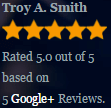Every state has different laws regarding sexual assault. New York’s sex crime laws are very strict. It’s important that you understand those laws to avoid legal trouble. And if you do find yourself in trouble, you should understand your possible defenses. To help you understand, here’s a guide to New York Sexual Assault Laws.
The New York Sexual Assault Laws
In the state of New York, sexual abuse includes a variety of actions. By definition, sexual abuse is when one person subjects another to sexual contact without consent. Of course, it’s also important to understand the meaning of sexual contact. Touching any person in intimate or sexual parts to satisfy a sexual desire is sexual contact. It does not matter if the touching is done through clothing or nude; in either case, the touching could be sexual.
These definitions are quite broad. For that reason, there are many crimes that fall under the umbrella of sexual assault. One of the more serious types of sexual assault is forcible touching and repeated sexual abuse. Another type of sexual assault is aggravated sexual abuse. This occurs when someone inserts a foreign object in the anus, rectum, urethra, vagina, or penis of someone else.
To make New York sexual assault laws more clear and defined, you can split the crimes into degrees of severity. For example, touching someone sexually without consent is a third-degree sexual abuse. However, forcible touching can become a second-degree offense if the victim is under a certain age.
In New York, judges do not take these crimes lightly. New York sexual assault laws are strict. As a result, the consequences of a guilty verdict can be severe. In addition to facing jail time, you may have long-term consequences. You could end up on a sex offender registry. You may have housing restrictions, and you may have difficulty finding work. With such strict penalties, it’s important to get help from a lawyer. You need to be able to defend yourself in court and fight the charges.
Possible Defenses
If you find yourself facing a sexual assault charge, the most important thing you can do is to get a lawyer. Only a lawyer understands your possible defenses. With a qualified lawyer, you can learn what you can do to protect yourself. And you can learn what you should avoid doing to prevent making the situation worse.
Once you have an experienced lawyer, you can start working to minimize your charges. Your lawyer has a few options for minimizing the consequences or getting the charges dropped. Here’s a look at some of your options:
1. Innocence
The first defense that your lawyer may consider is innocence. There may be evidence that proves you were not able to commit the crime of which you are accused. For example, you might have an alibi. If you were at a different location when the crime occurred, a lawyer could try to prove your innocence. For this to work, you need an alibi with reliable witnesses to back you up.
You can also claim misidentification. There may be evidence that shows that you did not commit the crime. DNA evidence may prove that someone else committed the crime.
If your lawyer provides the jury with enough evidence, the jury may give you an acquittal. This releases you from any guilt and lets you go on with your life.
2. Consent
By definition, sexual assault requires no consent. If a lawyer can prove that there was consent, you may get a good outcome. For example, a lawyer could argue that the victim consented to the sexual act. If this is true, the incident was not sexual assault.
Proving consent can be very difficult. Usually, there’s no direct proof of consent. A lawyer may need to consider the sexual history of the victim and show that history in court. Sometimes, this evidence can turn the jury against you.
3. Insanity
If you have a mental disease or suffered from one during the incident, your lawyer can plead insanity. This would take criminal liability away from you. Most states offer defendants more leniency if there is proof of a mental condition. However, that mental condition would need to show that you did not understand the consequences of your actions. You also need a trusted expert witness who could attest to your mental illness.
Keep in mind that your court case is unique. There are other defenses that a lawyer could use to help you, but it all depends on your situation. In any case, the outcome of your case depends on many factors. In addition to depending on the specifics of the incident, it depends on your defense, your lawyer, and your judge. You need all the help that you can get, and you need a great lawyer by your side. With an experienced lawyer, you may end up with a good outcome. It gives you the best chance of success.












